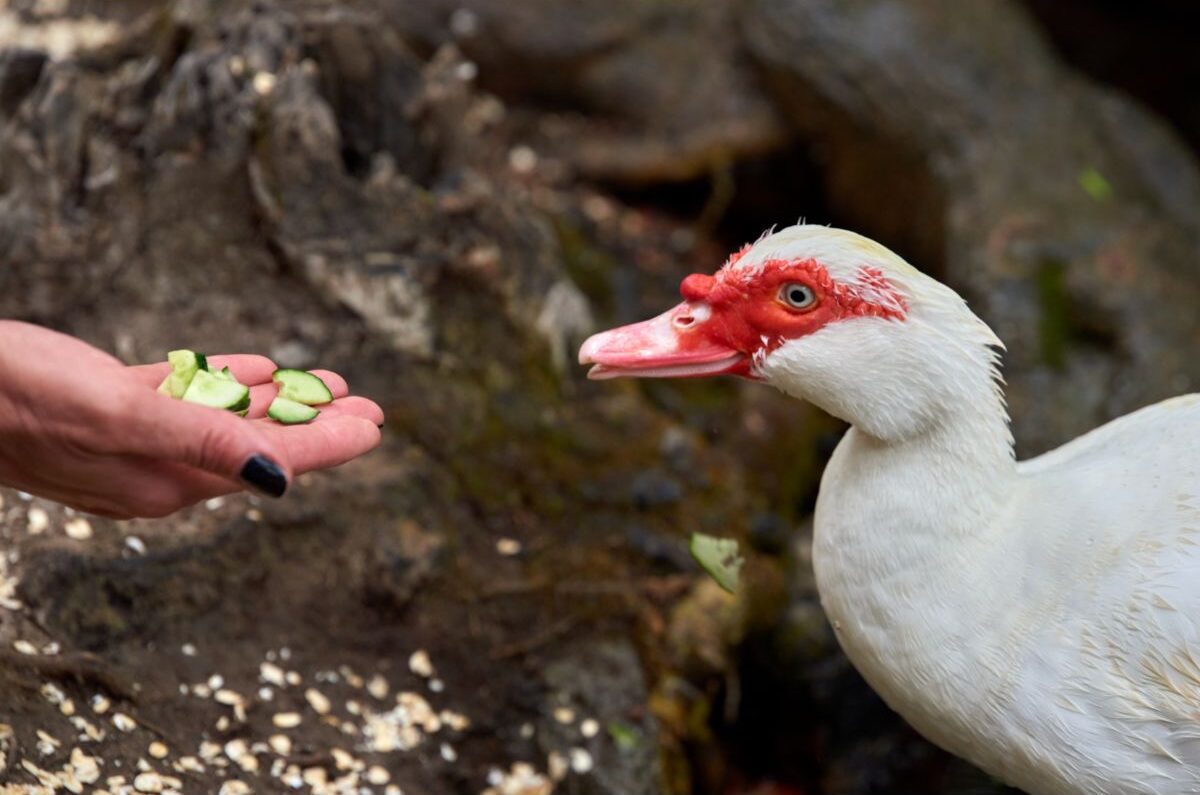There’s something beautiful about raising different breeds of chickens in one flock. Besides their unique personalities and stunning colors, you’ll also get different colored eggs. If you have a flock of chickens of the same breed, you may consider adding another breed and creating a mixed flock. But can you keep different chicken breeds in one flock?
Different chicken breeds can be kept in one flock; this is known as a mixed flock. Most breeds get along well; however, some breeds may be hostile. Therefore, before mixing a flock, you’ll need to determine which breeds get along and which are more likely to fight.
Some breeds of chicken are calm and have no need to be territorial or aggressive. However, other breeds may be feistier and more aggressive when placed into a flock of a different breed. This is the most essential thing to think about when mixing your flock of chickens.
Contents
Keeping Different Breeds Of Chickens In One Flock
There are numerous benefits to keeping different breeds of chickens in one flock. Besides having many different chickens as pets and getting different colored eggs, you can have enough eggs laid for the whole year with a mixed flock.
The biggest concern most backyard farmers have when mixing a flock is if their chickens will get along. In most cases, chickens will get along, provided there is enough space, sufficient feeders, and waterers for the chickens.
Some breeds are more likely to be hostile and bully other breeds, which should be avoided. When raising a mixed flock, the number of each breed should be kept the same to ensure none of the chickens are picked on if there is an odd number.
Picking breeds with the same temperament is the safest option when mixing different breeds of chicken in one flock.
Basic rule for mixed chicken flocks
In addition to character, the size of the chickens is also a critical factor for successful socialization.
In general, the rule of thumb is:
- Large chicken breeds can be kept well with other large chicken breeds, e.g., Australorps with Cochins
- Medium sized chicken breeds, such as Marans and Rhodelands can be kept well with other medium sized breeds
- Most bantam breeds are very compatible with each other and you can keep them in a flock without any problems. Bantam Plymouth Rocks, Bantam Australorps, Bantam Sussex, Bantam Cochins and Bantam Silkie chickens can all be kept in one flock.
Chicken Breeds That Can Be In The Same Flock
Some chicken breeds have a friendly disposition and can get along well with other chickens. These include:
- Cochins
- Rhode Island Reds
- Sussex
- Silkies
- Speckled Babcock
- Australorps
- Bantam
- Plymouth rock
- Dorking
- Isa Brown
- Golden comet
Chicken Breeds Who Should Not Be In The Same Flock
The following chicken breeds should not be kept in the same flock and are known to be aggressive breeds of chickens:
- Polish
- Faverolles
- Buckeye
- Sumatra
- Asil
- American chicken
- Malay
- White leghorn
- Campine
- Old English Game
What To Consider When Putting Chicken Breeds In One Flock
Chickens of all sizes can form part of your mixed flock. When putting different breeds in a flock, there are a few things to consider to keep your chickens happy.
- Personality. Some chicken breeds are lively and chatty, while others are calm and reserved. A breed’s personality should be taken into account before mixing your flock. Some chickens get along well with kids, while others can be aggressive. You’ll want to choose breeds that are docile to avoid fighting.
- Climate. What is your climate like? Some chickens can handle any climate, while others prefer either slightly colder or warmer temperatures. If you have cooler weather, you’ll want to choose a chicken breed that is suitable for this. If going for a breed that is not suited to your climate, you’ll need to build a coop with extra heating and bedding to keep your chickens warm.
- Life expectancy. If creating a mixed flock, it’s best to keep chickens that can live for the same amount of time. If not, you’ll be introducing new chickens into a flock of chickens that have already bonded with one another.
- Size of the flock. If you are mixing a flock, you need to have enough space for all your chickens. Chickens thrive when they have enough room to roam freely. You should avoid overcrowding your chickens; this may only lead to them becoming territorial.
- Eggs. Different chicken breeds in one flock will lay different colored eggs. If you prefer keeping your eggs the same color, stick to a flock of the same breed. Here you can read about the best breeds for colorful eggs.
Can Different Breeds Of Chickens In One Flock Mate?
Different breeds of chickens in the same flock can mate. If different breeds mate, you’ll get a new breed of chicken with characteristics from both breeds that mated. A rooster is essential to a mixed flock if you want to cross-breed your chickens. Roosters can be territorial and like to cause fights among the other chickens. It’s critical to consider this when mixing your flock.
Cross-bred chickens can come in exciting color combinations and possess many desirable traits from both the rooster and hen. Some may have great features like excellent laying abilities, unique egg colors, and soft feathers.
Which Roosters Are The Best For A Mixed Flock
Roosters in a mixed flock can breed with your hens to get cross breeds of chickens. A rooster in your mixed flock can keep your hens in line, and roosters protect your chicks. The best rooster breeds to include in a mixed flock are the Rhode Island Red, Easter Eggers, and the Barred Rocks.
Will Different Breeds Of Chickens In One Flock Bond?
When a mixed flock of chickens lives together, a pecking order is established. Some bigger chickens like the bantam may naturally take charge of smaller breeds. Chickens of the same breed may bond with one another, but different can also bond depending on their temperament.
If your flock contains a few different breeds with different kinds of personalities, there may be some fighting amongst your flock. If you have an existing flock and want to introduce new breeds of chickens, there may be a need for a new pecking order to be established. If introducing new chickens, it is better to introduce younger chickens to avoid them wanting to fight for dominance.
Ideally, getting chickens of the same age and different breeds simultaneously is best for keeping a thriving mixed flock.
Conclusion
Different chicken breeds can be kept in one flock but should have the same temperament. Chickens that are part of a mixed flock can fight for dominance and become territorial if they don’t have enough space, separate food containers, and waterers. There are so many reasons to keep a mixed flock. They are not only beautiful to admire but also produce different colored eggs and make lovely pets.




